
Report



Project Hyperion: Humanity's Bold Leap Into the Stars - The Ultimate Space Challenge of 2024
November 27, 2024
Project Hyperion: Humanity's Bold Leap Into the Stars - The Ultimate Space Challenge of 2024


Nov 27, 2024
Nov 27, 2024
Social Engineering at Its Peak
"This is where science fiction meets anthropology,"
notes Cameron Smith, the project's anthropologist.
"We're asking teams to design not just a ship, but a complete human society that can remain stable and purposeful across ten generations in the void of space."

AI image of a public space onboard a Generation spacecraft
The Competition Heats Up
With registration opening November 1, 2024, teams worldwide are already forming. The stakes are high - beyond the substantial cash prizes, winning designs could literally shape humanity's first steps to the stars. The competition will unfold in two intense phases, culminating in June 2025.
Awards and Recognition
The competition offers significant prizes:
First Place: $5,000
Second Place: $3,000
Third Place: $2,000
Ten Honorary Mentions
A Legacy for the Future
"Every submission becomes part of humanity's collective knowledge about interstellar travel,"
explains Yazgı Demirbaş Pech, architect and illustrator for the project. Under Creative Commons licensing, these designs will contribute to the growing field of interstellar studies, potentially influencing real-world space habitat design for generations to come.
The Technical Frontier
The engineering challenges push the boundaries of current technology. Teams must devise solutions for:
- Protection against deadly cosmic radiation
- Self-sustaining life support systems
- Artificial gravity generation - Micrometeoroid defence
- Long-term structural integrity
Looking to the Stars
As Project Hyperion unfolds, it promises to revolutionize our approach to long-duration space travel.
"This isn't just about reaching another star,"
says Michel Lamontagne, designer and project team member.
"It's about ensuring that when we do, we arrive not just as survivors, but as a thriving civilization ready to take its next giant leap."

6,000 People Were Sent to Colonize a Distant Planet | Sci-Fi Documentary
from @ryv
Project Hyperion represents more than a design competition - it's humanity's first serious attempt to blueprint our expansion into the cosmos. As teams worldwide rise to this extraordinary challenge, they're not just designing spacecraft; they're crafting the future of human civilization among the stars.
Source: Official Project Hyperion Competition Brief (2024), Initiative for Interstellar Studies (i4is)
Social Engineering at Its Peak
"This is where science fiction meets anthropology,"
notes Cameron Smith, the project's anthropologist.
"We're asking teams to design not just a ship, but a complete human society that can remain stable and purposeful across ten generations in the void of space."

AI image of a public space onboard a Generation spacecraft
The Competition Heats Up
With registration opening November 1, 2024, teams worldwide are already forming. The stakes are high - beyond the substantial cash prizes, winning designs could literally shape humanity's first steps to the stars. The competition will unfold in two intense phases, culminating in June 2025.
Awards and Recognition
The competition offers significant prizes:
First Place: $5,000
Second Place: $3,000
Third Place: $2,000
Ten Honorary Mentions
A Legacy for the Future
"Every submission becomes part of humanity's collective knowledge about interstellar travel,"
explains Yazgı Demirbaş Pech, architect and illustrator for the project. Under Creative Commons licensing, these designs will contribute to the growing field of interstellar studies, potentially influencing real-world space habitat design for generations to come.
The Technical Frontier
The engineering challenges push the boundaries of current technology. Teams must devise solutions for:
- Protection against deadly cosmic radiation
- Self-sustaining life support systems
- Artificial gravity generation - Micrometeoroid defence
- Long-term structural integrity
Looking to the Stars
As Project Hyperion unfolds, it promises to revolutionize our approach to long-duration space travel.
"This isn't just about reaching another star,"
says Michel Lamontagne, designer and project team member.
"It's about ensuring that when we do, we arrive not just as survivors, but as a thriving civilization ready to take its next giant leap."

6,000 People Were Sent to Colonize a Distant Planet | Sci-Fi Documentary
from @ryv
Project Hyperion represents more than a design competition - it's humanity's first serious attempt to blueprint our expansion into the cosmos. As teams worldwide rise to this extraordinary challenge, they're not just designing spacecraft; they're crafting the future of human civilization among the stars.
Source: Official Project Hyperion Competition Brief (2024), Initiative for Interstellar Studies (i4is)
Imagine designing humanity's first interstellar ark - a colossal spacecraft carrying a thousand souls on an epic 250-year journey to the stars. This isn't science fiction anymore. In a thrilling announcement that's sending shockwaves through the space science community, the Initiative for Interstellar Studies (i4is) has thrown down the gauntlet with Project Hyperion - perhaps the most ambitious space design challenge in human history.
Core Mission Parameters
The competition establishes several groundbreaking parameters. The generation ship must sustain a population of 1,000 (±500) people for 250 years while traveling at several percent of light speed. The destination: a rocky planet with an established artificial ecosystem. Earth-equivalent gravity through rotation is mandatory, and all proposed technologies must meet minimum Technology Readiness Level 2.

Project Hyperion spacecraft design image
A New Dawn for Space Exploration
"We're not just designing a spacecraft,"
declares Andreas Hein, one of Project Hyperion's leading aerospace engineers.
"We're architecting the future of human civilization among the stars."
This bold initiative envisions a post-scarcity Earth ready to launch its first generation ship, marking humanity's most daring venture into the cosmic unknown.
The Ultimate Challenge
Picture vast rotating habitats where children are born never knowing Earth, where gardens flourish beneath artificial suns, and where each generation carries the torch of human knowledge further into the starlit void. The technical challenges are staggering - from shielding against the deadly dance of cosmic rays to creating a perfect miniature Earth that must function flawlessly for centuries.

Project Hyperion spacecraft systems diagram
Revolutionary Team Structure
In an unprecedented move, Project Hyperion demands truly interdisciplinary teams.
"The challenges of interstellar travel can't be solved by engineers alone,"
explains Dan Fries, aerospace engineer and competition organizer.
"We need architects to envision living spaces, social scientists to design societies, and engineers to make it all possible."
A Journey Beyond Technology
The most fascinating aspect? This isn't just about advanced propulsion or radiation shielding. Teams must tackle questions that have challenged philosophers for millennia: How do you preserve human culture across ten generations? What happens to language, art, and belief systems in complete isolation? How do you maintain the drive to complete a journey that your great-great-grandchildren will finish?
The Living Ship
The habitat must be more than a vessel - it needs to be a living, breathing world. Competition guidelines call for: - Earth-like gravity through massive rotating structures - Self-sustaining ecosystems that can operate for centuries - Flexible living spaces that can evolve with their inhabitants - Robust protection against the harsh realities of deep space
Generation Ship AI Image Gallery
Imagine designing humanity's first interstellar ark - a colossal spacecraft carrying a thousand souls on an epic 250-year journey to the stars. This isn't science fiction anymore. In a thrilling announcement that's sending shockwaves through the space science community, the Initiative for Interstellar Studies (i4is) has thrown down the gauntlet with Project Hyperion - perhaps the most ambitious space design challenge in human history.
Core Mission Parameters
The competition establishes several groundbreaking parameters. The generation ship must sustain a population of 1,000 (±500) people for 250 years while traveling at several percent of light speed. The destination: a rocky planet with an established artificial ecosystem. Earth-equivalent gravity through rotation is mandatory, and all proposed technologies must meet minimum Technology Readiness Level 2.

Project Hyperion spacecraft design image
A New Dawn for Space Exploration
"We're not just designing a spacecraft,"
declares Andreas Hein, one of Project Hyperion's leading aerospace engineers.
"We're architecting the future of human civilization among the stars."
This bold initiative envisions a post-scarcity Earth ready to launch its first generation ship, marking humanity's most daring venture into the cosmic unknown.
The Ultimate Challenge
Picture vast rotating habitats where children are born never knowing Earth, where gardens flourish beneath artificial suns, and where each generation carries the torch of human knowledge further into the starlit void. The technical challenges are staggering - from shielding against the deadly dance of cosmic rays to creating a perfect miniature Earth that must function flawlessly for centuries.

Project Hyperion spacecraft systems diagram
Revolutionary Team Structure
In an unprecedented move, Project Hyperion demands truly interdisciplinary teams.
"The challenges of interstellar travel can't be solved by engineers alone,"
explains Dan Fries, aerospace engineer and competition organizer.
"We need architects to envision living spaces, social scientists to design societies, and engineers to make it all possible."
A Journey Beyond Technology
The most fascinating aspect? This isn't just about advanced propulsion or radiation shielding. Teams must tackle questions that have challenged philosophers for millennia: How do you preserve human culture across ten generations? What happens to language, art, and belief systems in complete isolation? How do you maintain the drive to complete a journey that your great-great-grandchildren will finish?
The Living Ship
The habitat must be more than a vessel - it needs to be a living, breathing world. Competition guidelines call for: - Earth-like gravity through massive rotating structures - Self-sustaining ecosystems that can operate for centuries - Flexible living spaces that can evolve with their inhabitants - Robust protection against the harsh realities of deep space
Generation Ship AI Image Gallery
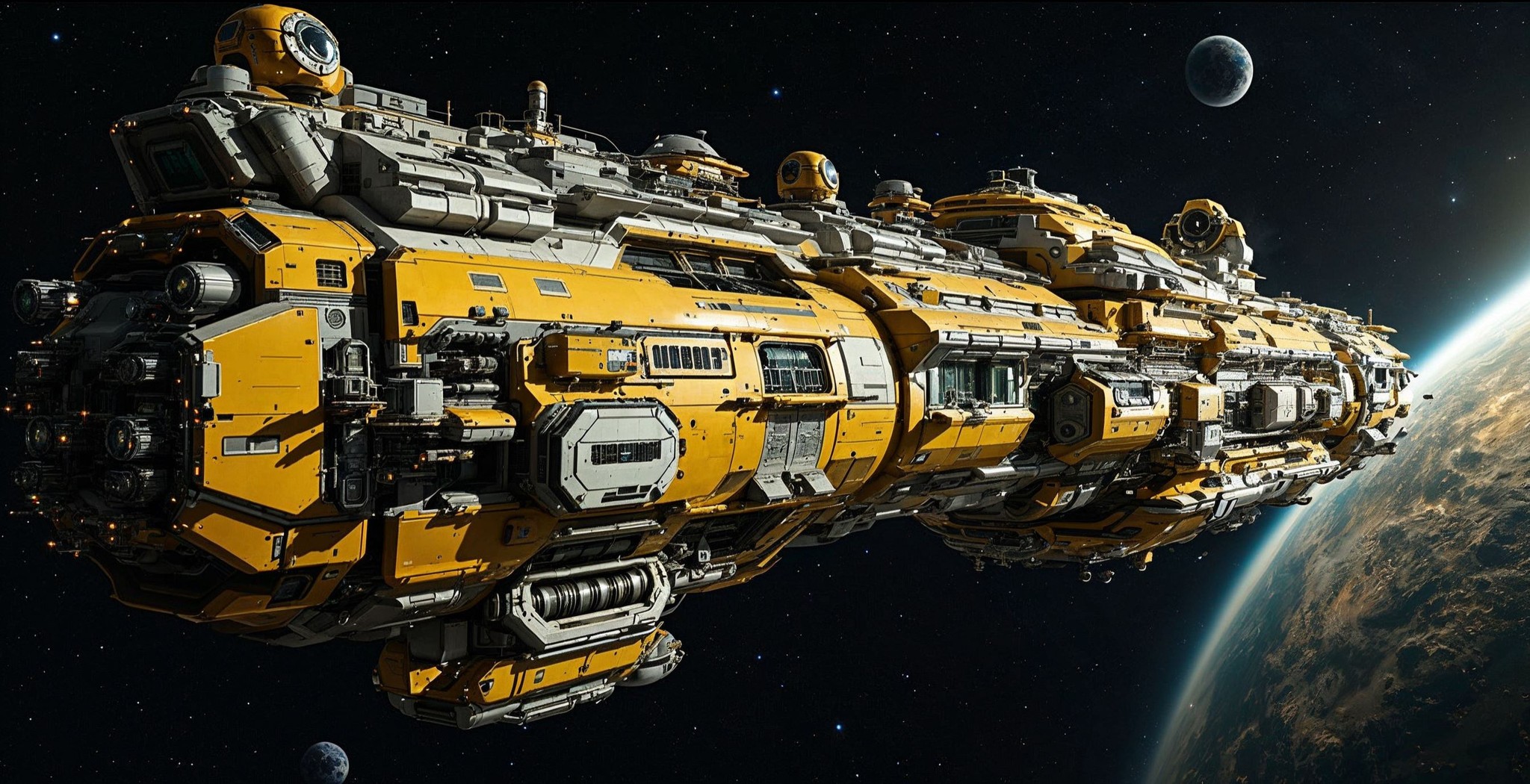
AI image of a generation ship
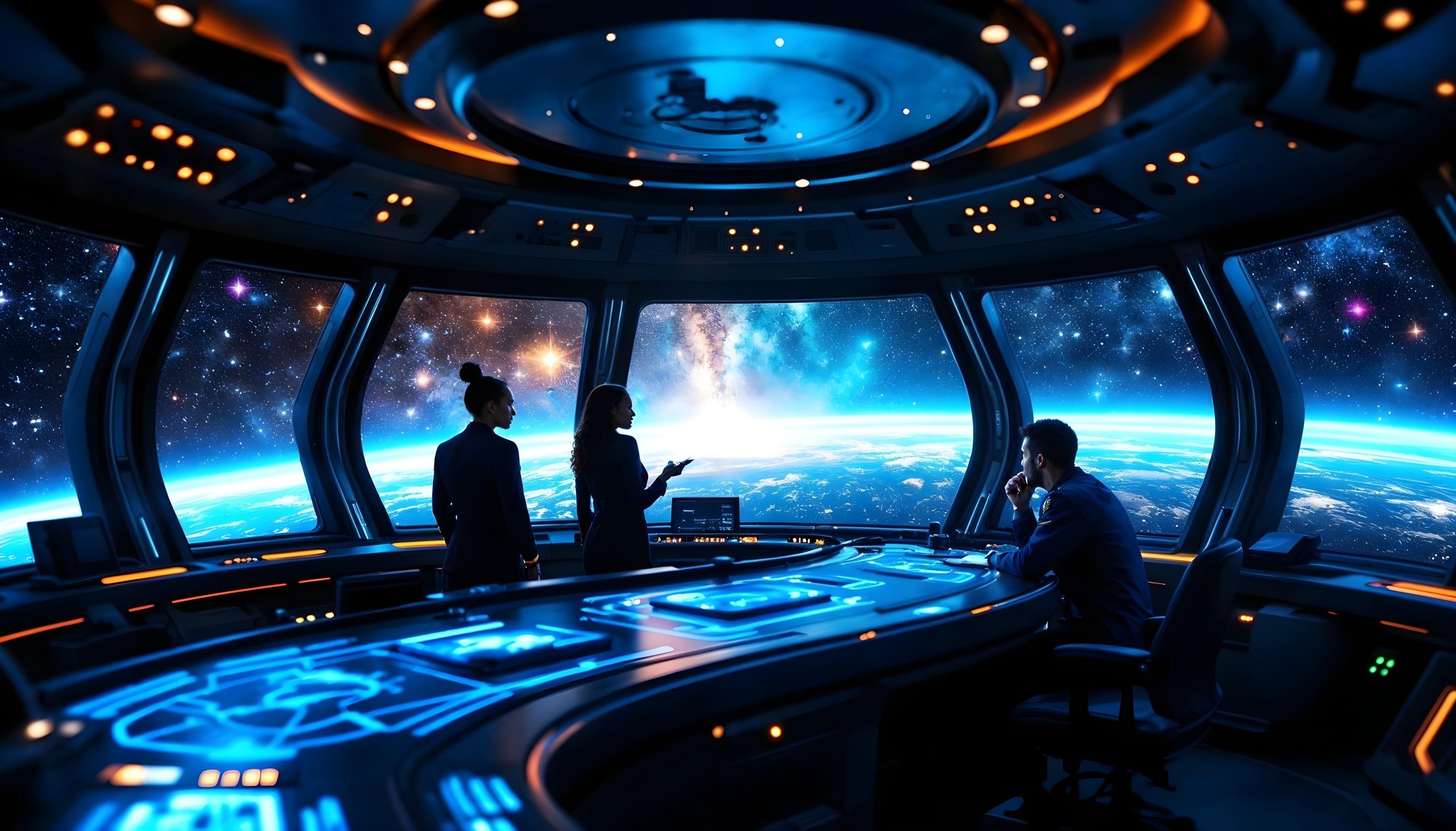
The command deck onboard a generation ship
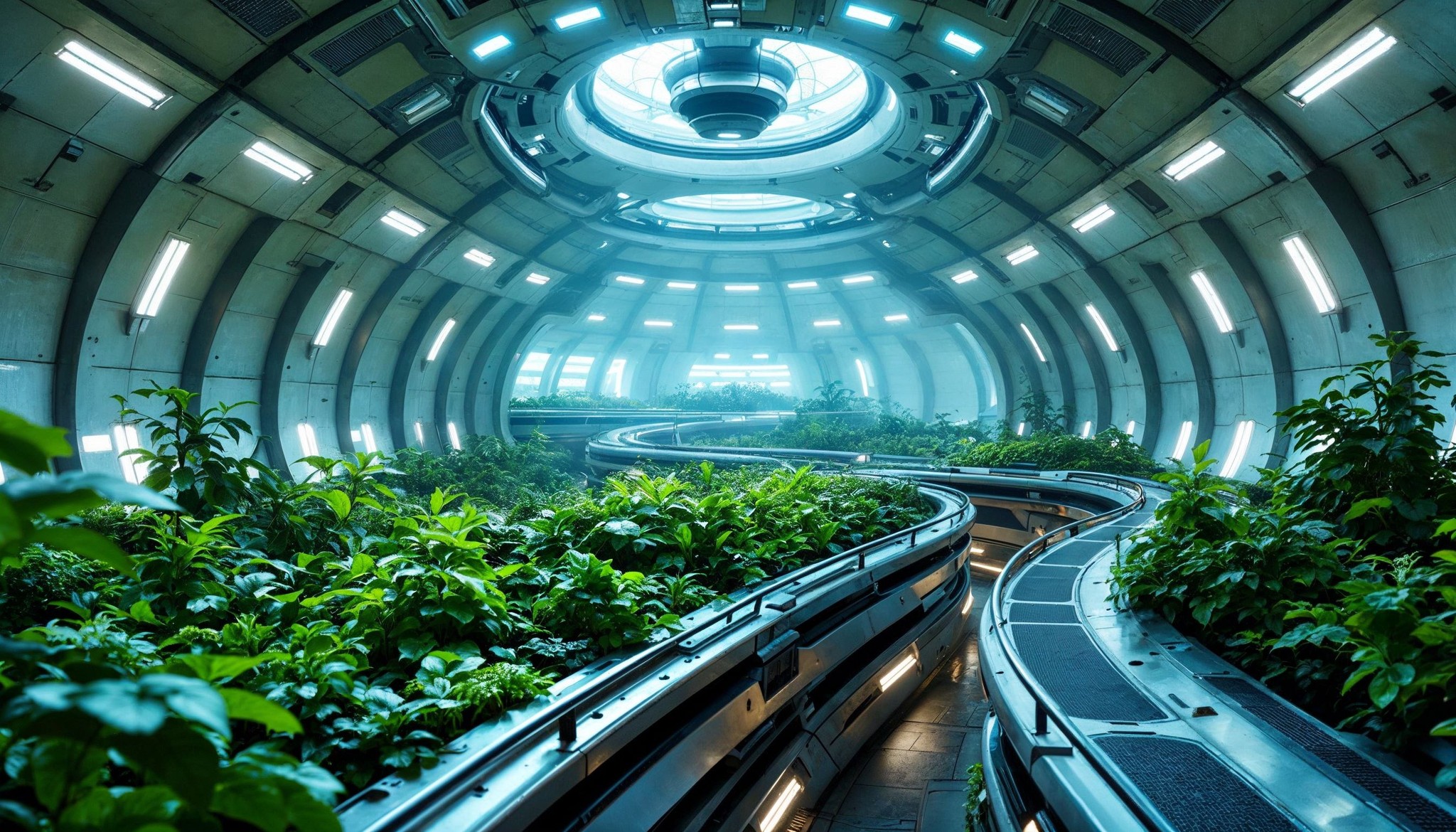
An agricultural zone onboard a generation ship

Food cultivation onboard a generation ship
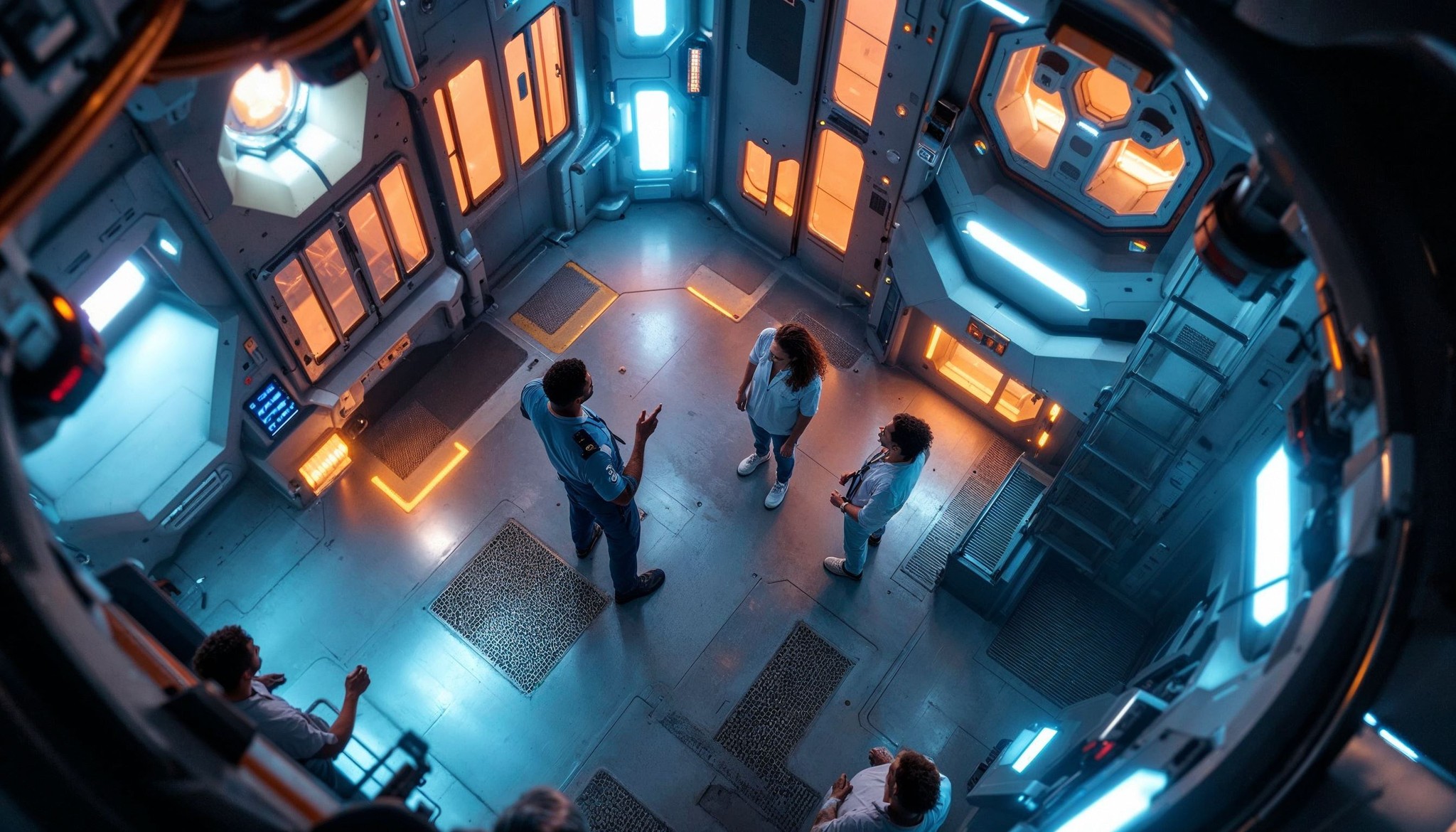
Maintainence/services zones onboard a generation ship

Manufacturing zone onboard a generation ship

A medical centre onboard a generation ship
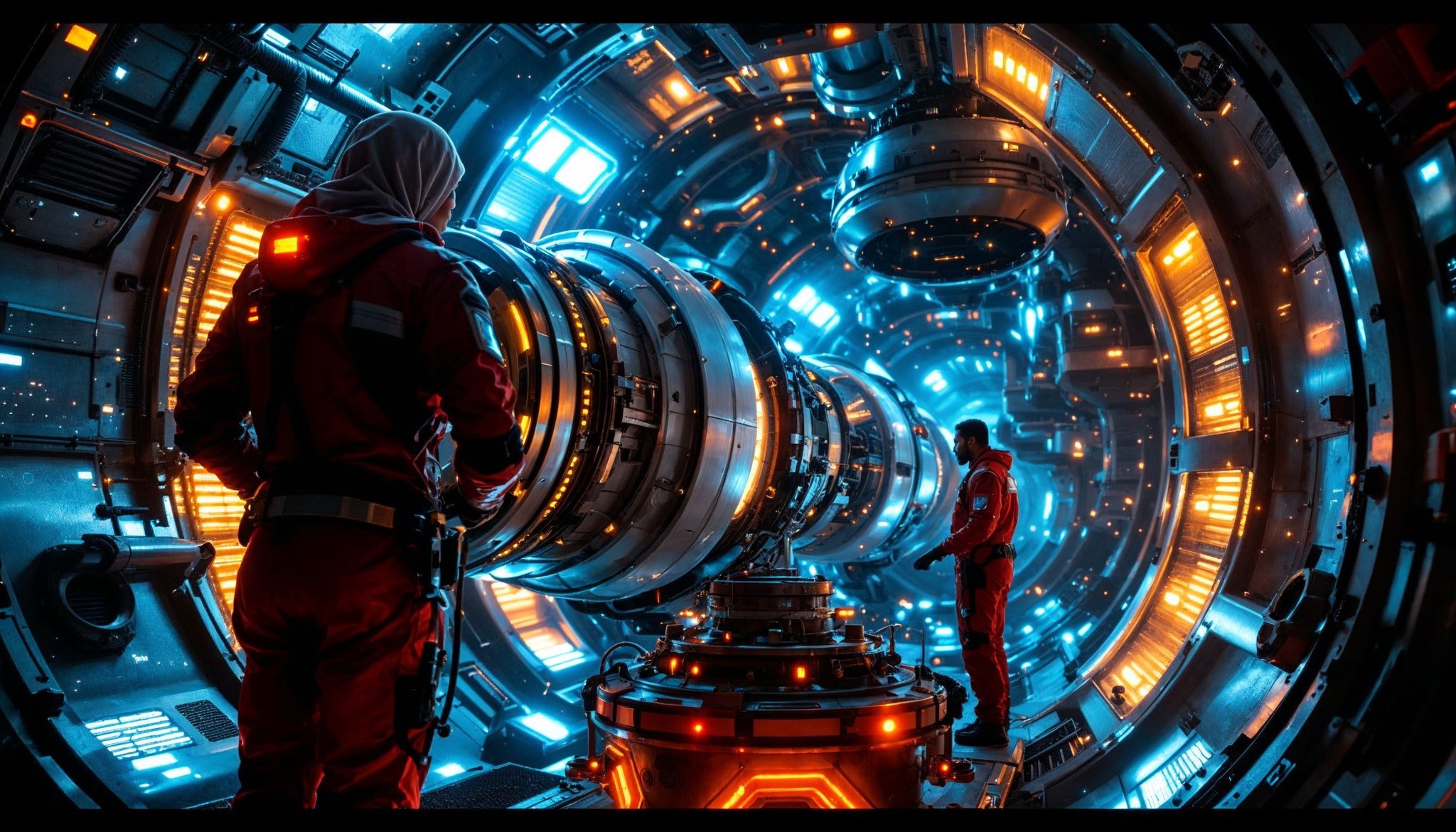
Engineering and propulsion zone on a generation ship

The EVA zone onboard a generation ship
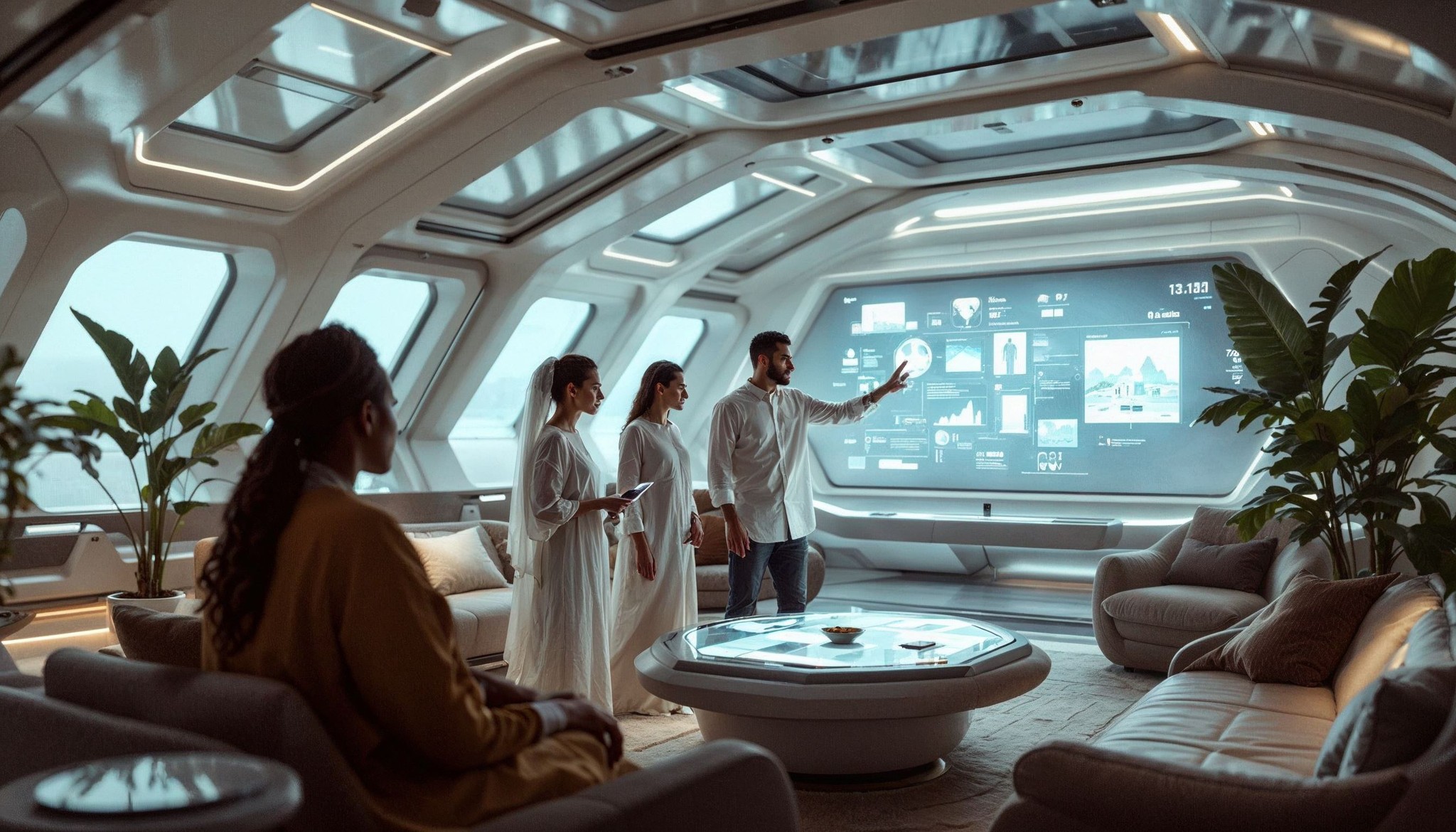
Living quarters on a generation ship
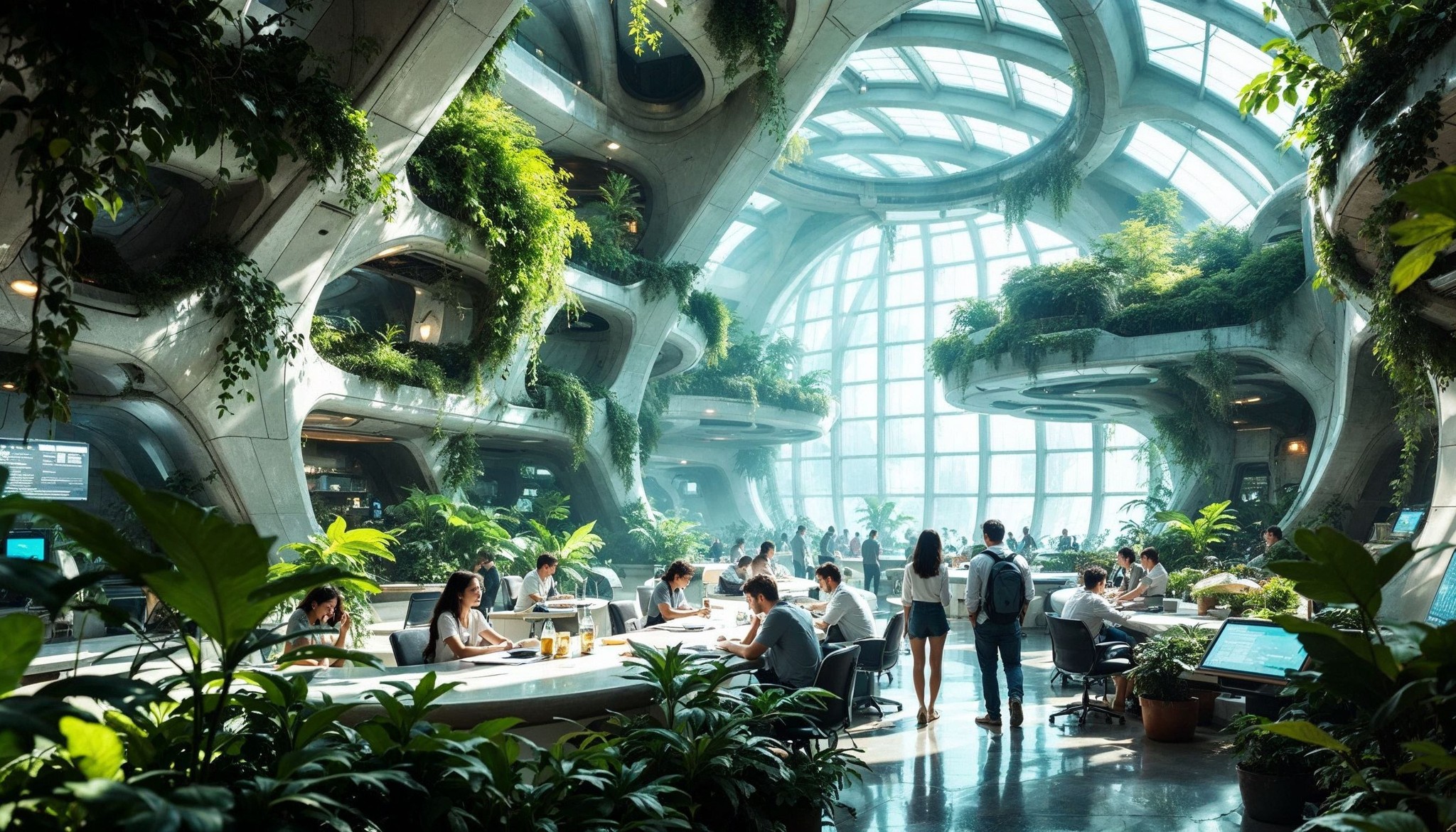
Education facilities on a generation ship
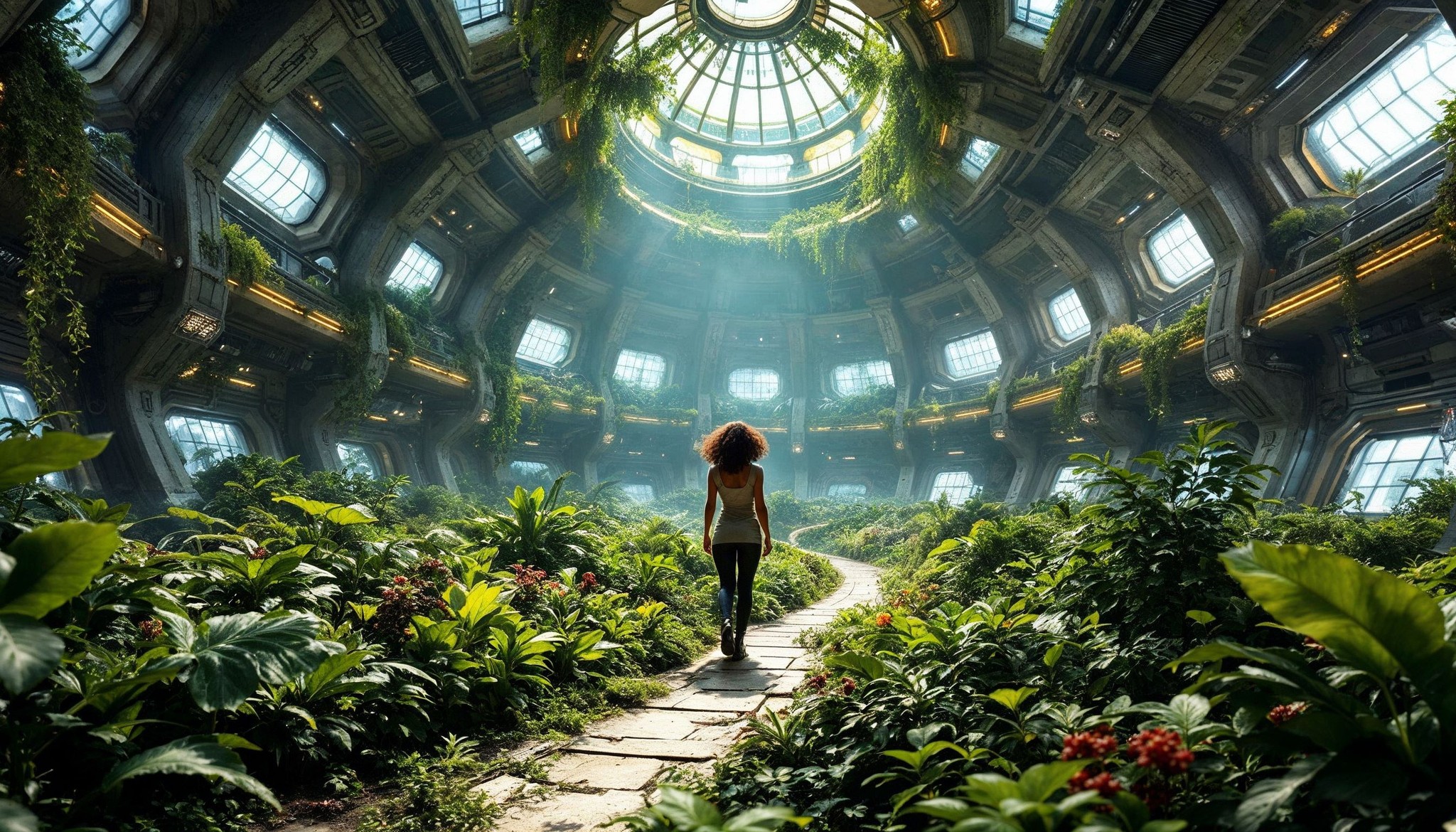
A garden space onboard a generation ship
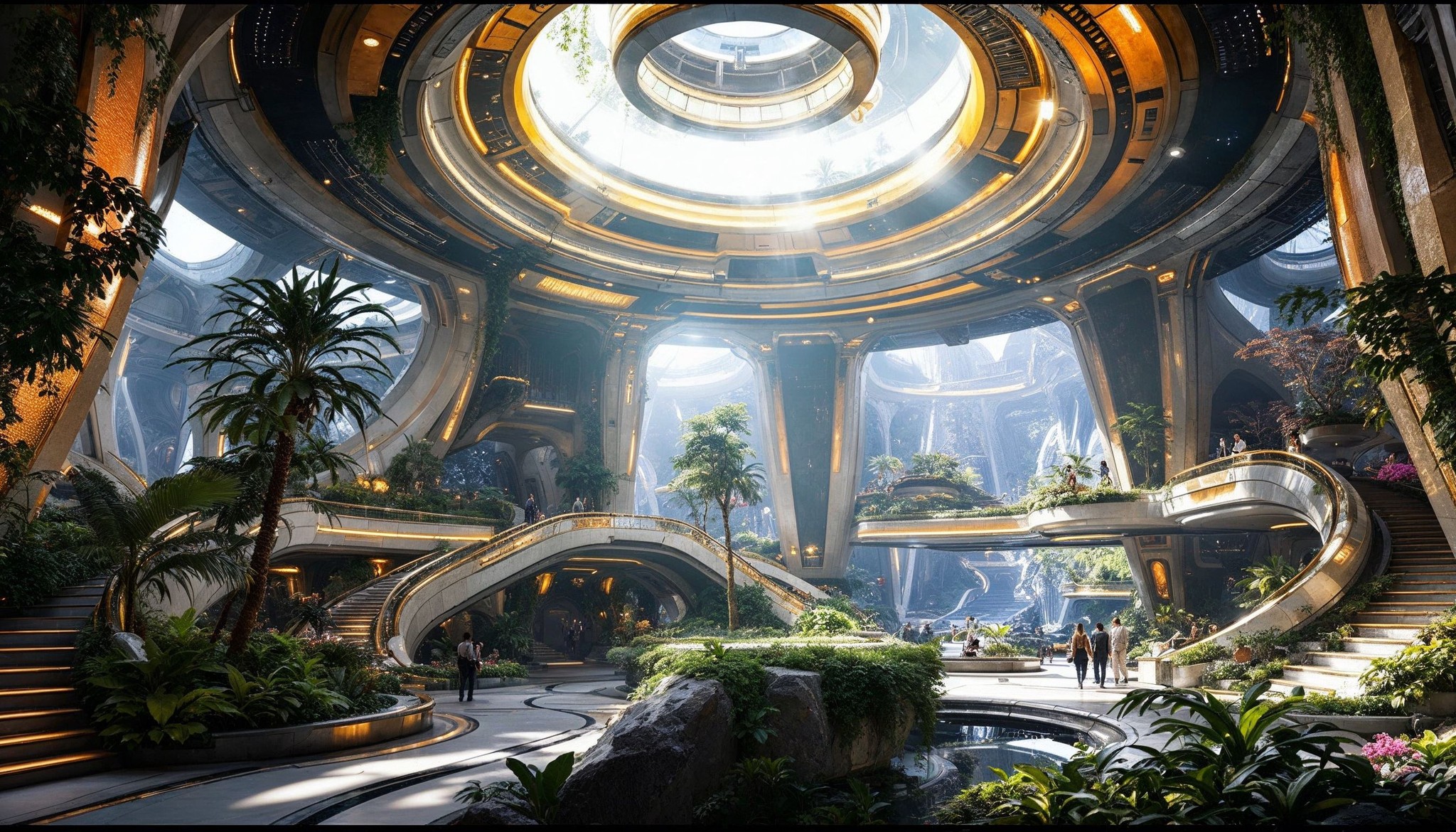
A public space on a generation ship
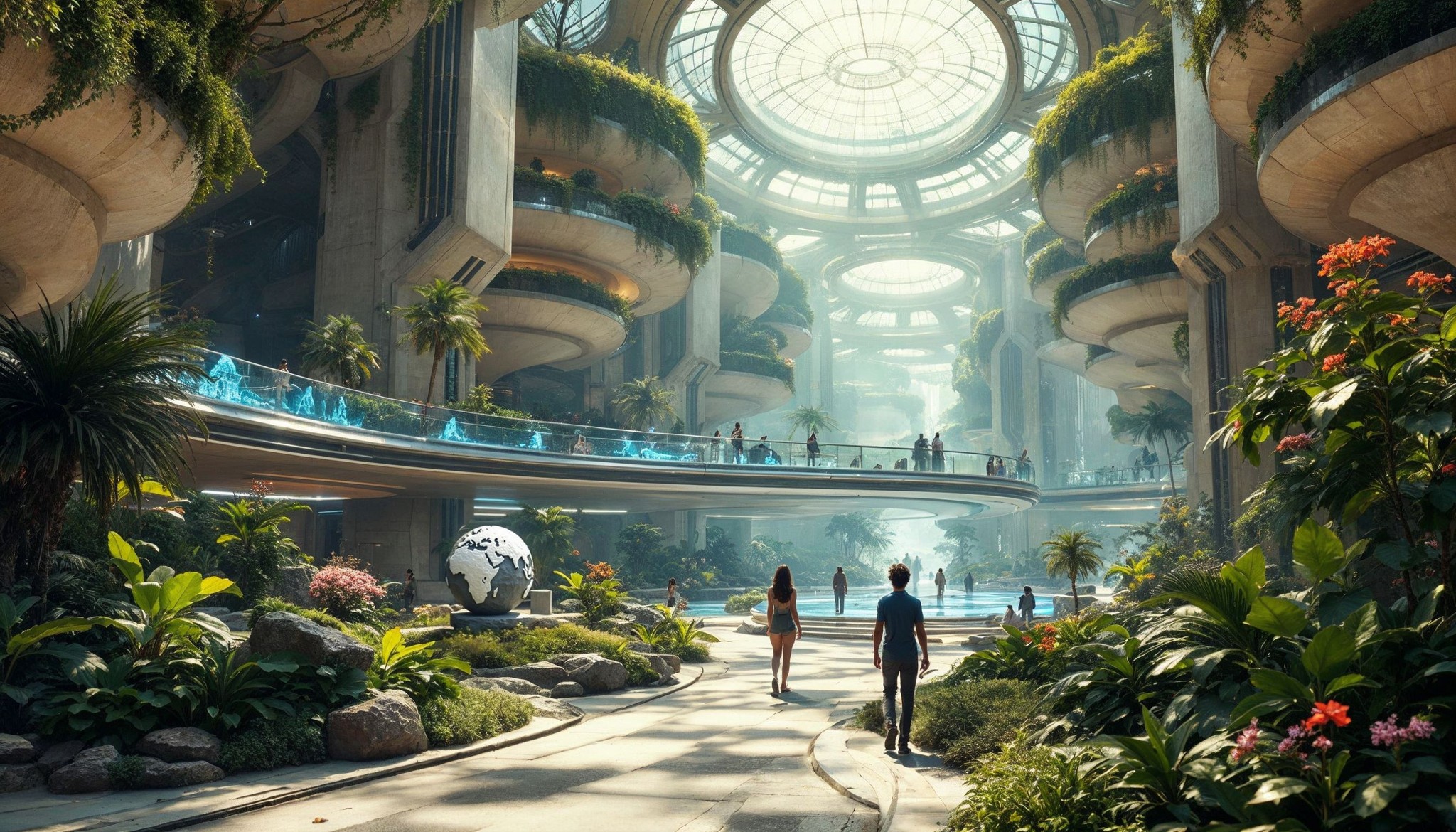
A planet Earth memorial zone onboard a generation ship

Sport and fitness zones onboard a generation ship

Sport and fitness zones onboard a generation ship

Recreation zones onboard a generation ship

Recreation zones onboard a generation ship

AI image of a generation ship

The command deck onboard a generation ship

An agricultural zone onboard a generation ship

Food cultivation onboard a generation ship

Maintainence/services zones onboard a generation ship

Manufacturing zone onboard a generation ship

A medical centre onboard a generation ship

Engineering and propulsion zone on a generation ship

The EVA zone onboard a generation ship

Living quarters on a generation ship

Education facilities on a generation ship

A garden space onboard a generation ship

A public space on a generation ship

A planet Earth memorial zone onboard a generation ship

Sport and fitness zones onboard a generation ship

Sport and fitness zones onboard a generation ship

Recreation zones onboard a generation ship

Recreation zones onboard a generation ship

AI image of a generation ship

The command deck onboard a generation ship

An agricultural zone onboard a generation ship

Food cultivation onboard a generation ship

Maintainence/services zones onboard a generation ship

Manufacturing zone onboard a generation ship

A medical centre onboard a generation ship

Engineering and propulsion zone on a generation ship

The EVA zone onboard a generation ship

Living quarters on a generation ship

Education facilities on a generation ship

A garden space onboard a generation ship

A public space on a generation ship

A planet Earth memorial zone onboard a generation ship

Sport and fitness zones onboard a generation ship

Sport and fitness zones onboard a generation ship

Recreation zones onboard a generation ship

Recreation zones onboard a generation ship

AI image of a generation ship

The command deck onboard a generation ship

An agricultural zone onboard a generation ship

Food cultivation onboard a generation ship

Maintainence/services zones onboard a generation ship

Manufacturing zone onboard a generation ship

A medical centre onboard a generation ship

Engineering and propulsion zone on a generation ship

The EVA zone onboard a generation ship

Living quarters on a generation ship

Education facilities on a generation ship

A garden space onboard a generation ship

A public space on a generation ship

A planet Earth memorial zone onboard a generation ship

Sport and fitness zones onboard a generation ship

Sport and fitness zones onboard a generation ship

Recreation zones onboard a generation ship

Recreation zones onboard a generation ship

AI image of a generation ship

The command deck onboard a generation ship

An agricultural zone onboard a generation ship

Food cultivation onboard a generation ship

Maintainence/services zones onboard a generation ship

Manufacturing zone onboard a generation ship

A medical centre onboard a generation ship

Engineering and propulsion zone on a generation ship

The EVA zone onboard a generation ship

Living quarters on a generation ship

Education facilities on a generation ship

A garden space onboard a generation ship

A public space on a generation ship

A planet Earth memorial zone onboard a generation ship

Sport and fitness zones onboard a generation ship

Sport and fitness zones onboard a generation ship

Recreation zones onboard a generation ship

Recreation zones onboard a generation ship

AI image of a generation ship

The command deck onboard a generation ship

An agricultural zone onboard a generation ship

Food cultivation onboard a generation ship

Maintainence/services zones onboard a generation ship

Manufacturing zone onboard a generation ship

A medical centre onboard a generation ship

Engineering and propulsion zone on a generation ship

The EVA zone onboard a generation ship

Living quarters on a generation ship

Education facilities on a generation ship

A garden space onboard a generation ship

A public space on a generation ship

A planet Earth memorial zone onboard a generation ship

Sport and fitness zones onboard a generation ship

Sport and fitness zones onboard a generation ship

Recreation zones onboard a generation ship

Recreation zones onboard a generation ship

AI image of a generation ship

The command deck onboard a generation ship

An agricultural zone onboard a generation ship

Food cultivation onboard a generation ship

Maintainence/services zones onboard a generation ship

Manufacturing zone onboard a generation ship

A medical centre onboard a generation ship

Engineering and propulsion zone on a generation ship

The EVA zone onboard a generation ship

Living quarters on a generation ship

Education facilities on a generation ship

A garden space onboard a generation ship

A public space on a generation ship

A planet Earth memorial zone onboard a generation ship

Sport and fitness zones onboard a generation ship

Sport and fitness zones onboard a generation ship

Recreation zones onboard a generation ship

Recreation zones onboard a generation ship

AI image of a generation ship

The command deck onboard a generation ship

An agricultural zone onboard a generation ship

Food cultivation onboard a generation ship

Maintainence/services zones onboard a generation ship

Manufacturing zone onboard a generation ship

A medical centre onboard a generation ship

Engineering and propulsion zone on a generation ship

The EVA zone onboard a generation ship

Living quarters on a generation ship

Education facilities on a generation ship

A garden space onboard a generation ship

A public space on a generation ship

A planet Earth memorial zone onboard a generation ship

Sport and fitness zones onboard a generation ship

Sport and fitness zones onboard a generation ship

Recreation zones onboard a generation ship

Recreation zones onboard a generation ship

AI image of a generation ship

The command deck onboard a generation ship

An agricultural zone onboard a generation ship

Food cultivation onboard a generation ship

Maintainence/services zones onboard a generation ship

Manufacturing zone onboard a generation ship

A medical centre onboard a generation ship

Engineering and propulsion zone on a generation ship

The EVA zone onboard a generation ship

Living quarters on a generation ship

Education facilities on a generation ship

A garden space onboard a generation ship

A public space on a generation ship

A planet Earth memorial zone onboard a generation ship

Sport and fitness zones onboard a generation ship

Sport and fitness zones onboard a generation ship

Recreation zones onboard a generation ship

Recreation zones onboard a generation ship

AI image of a generation ship

The command deck onboard a generation ship

An agricultural zone onboard a generation ship

Food cultivation onboard a generation ship

Maintainence/services zones onboard a generation ship

Manufacturing zone onboard a generation ship

A medical centre onboard a generation ship

Engineering and propulsion zone on a generation ship

The EVA zone onboard a generation ship

Living quarters on a generation ship

Education facilities on a generation ship

A garden space onboard a generation ship

A public space on a generation ship

A planet Earth memorial zone onboard a generation ship

Sport and fitness zones onboard a generation ship

Sport and fitness zones onboard a generation ship

Recreation zones onboard a generation ship

Recreation zones onboard a generation ship

AI image of a generation ship

The command deck onboard a generation ship

An agricultural zone onboard a generation ship

Food cultivation onboard a generation ship

Maintainence/services zones onboard a generation ship

Manufacturing zone onboard a generation ship

A medical centre onboard a generation ship

Engineering and propulsion zone on a generation ship

The EVA zone onboard a generation ship

Living quarters on a generation ship

Education facilities on a generation ship

A garden space onboard a generation ship

A public space on a generation ship

A planet Earth memorial zone onboard a generation ship

Sport and fitness zones onboard a generation ship

Sport and fitness zones onboard a generation ship

Recreation zones onboard a generation ship

Recreation zones onboard a generation ship

AI image of a generation ship

The command deck onboard a generation ship

An agricultural zone onboard a generation ship

Food cultivation onboard a generation ship

Maintainence/services zones onboard a generation ship

Manufacturing zone onboard a generation ship

A medical centre onboard a generation ship

Engineering and propulsion zone on a generation ship

The EVA zone onboard a generation ship

Living quarters on a generation ship

Education facilities on a generation ship

A garden space onboard a generation ship

A public space on a generation ship

A planet Earth memorial zone onboard a generation ship

Sport and fitness zones onboard a generation ship

Sport and fitness zones onboard a generation ship

Recreation zones onboard a generation ship

Recreation zones onboard a generation ship
Comments
Please be kind and considerate. Any abusive or offensive comments will be sent out the airlock! Thank You.
Please be kind and considerate. Any abusive or offensive comments will be sent out the airlock! Thank You.
Please be kind and considerate. Any abusive or offensive comments will be sent out the airlock! Thank You.
Main Image - Project Hyperion spacecraft design image - https://www.projecthyperion.org/ - https://static.wixstatic.com/media/1dff9e_b4fae103ac8f4a918eea517c551dd340~mv2.jpg/v1/fill/w_1815,h_740,al_c,q_85,usm_0.66_1.00_0.01,enc_avif,quality_auto/1dff9e_b4fae103ac8f4a918eea517c551dd340~mv2.jpg
Main Image - Project Hyperion spacecraft systems diagram - https://www.projecthyperion.org/_files/ugd/91ab16_5fbf6e286c574530baafb8882c404ff5.pdf pg14







